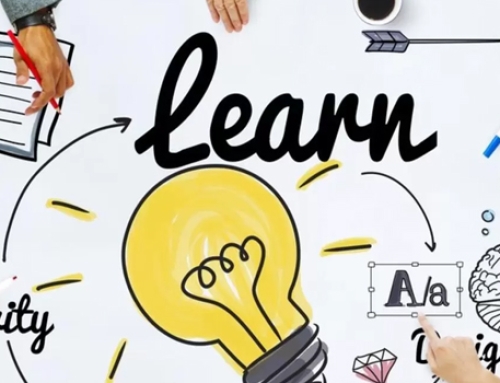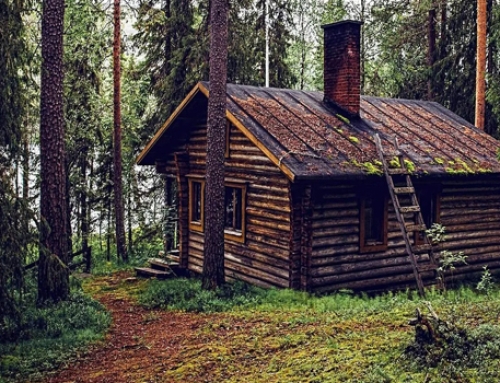“Ya know, like, nun-chuck skills and bow hunting skills, computer hacking skills… girls only want to have you if you’ve got skills!” – Napolean Dynamite
There’s only so much you can do with gathering the right stuff that you need to have access to when you want to be more Self-Reliant. There may come a time when in your search for self-reliance you may say to yourself, “Enough with all of the food and enough with all of the gear!”
What good will all that gear do you if you don’t have any practical applied knowledge on how to use them?!?
After years of seeking out the best stuff at the best prices, creating a stockpile, and purchasing equipment, you just might want to stop – at least for a while – and focus on something else: the vital qualities and abilities that no amount of money can buy.
Instead of adding to your food preservation only, consider investing some time alongside growing those life-saving foods in gaining proficiency in old-fashioned competence and common sense. While you can’t necessarily spend money to gain them outright, you can spend the more valuable time in taking a class or picking up some books about the following skills and put them into practice.
Today I would like to share my own list of important traits and skills and traits for preppers that money just can’t buy.
6 Vital Skills for Hard Times
1. Life-Saving Skills
It goes without saying that knowing how to identify in an emergency the needs (medical or otherwise) of what is happening in real time is an asset and can save lives. Basic wound care, suturing skills, recognizing shock symptoms and knowing the treatment for it all make a differencee in whether your loved ones will make it through a crisis.
Increase your knowledge in home herbal remedies that your great-grandmas used to pull out in times of sickness or injury. The tinctures, the poultices, the more immediate care you can have over time, especially when the modern medical facilities are not available.
Invest in knowing yourself, and those with which you live, and be able to.
2. Food Harvesting Skills
Whether you grow a simple plot of greens in your garden or maintain a mini-farm on an acre or two, knowing how to grow your own food is only a part of what you can do to keep you healthy and your bellies full. Beyond learning to work and develop whatever land you have, also look to become keenly familiar with those things that are edible and nutritious that grow in the wild, roots, leaves, berries, and other plants that will feed your family and possibly provide edible currency for barter in a full reset situation. Learn the skills that our ancestors used to get the land ready, preserve their food, and prolong their lives as happily as possible.
3. Basic Fix-It Skills
Knowing how to pound a nail and operate a hand saw are just two of the many fix-it skills that will help you make repairs once you begin the recovery process. Plumbing, welding, electrical, and general carpentry skills will always be in demand and will give you a marketable skill that will make you valuable to the community. This doesn’t always involve the things around the house, it can be working with metal, working with brick or clay, or as simple as being able to fix one’s shelter to keep the diseases, cold, and wolves at bay.
4. Home Economic Skills
Remember, when it came a time in the past, you couldn’t run to the nearest Sears and Roebuck to get that piece of clothing, or blanket, or tool. When you develop the skills that you can cook from scratch, preserve your home-grown food, sew or mend your own clothing, and maintain a clean, sanitary living environment will be critical to your health and well-being.
In modern times, we have become too reliant on others to tend to our basic needs: the supermarket provides us with food, the mall provides us with clothing, and the local power and water companies provide us with our utilities. Learning to get by on your own without modern conveniences will allow you to face a disaster more comfortably and to focus on the more important matter of staying safe.
5. Defense Skills
Whichever choice of self-defense method you choose, a stun gun, pepper spray, a knife, or a firearm, get to know your defensive weapon well so that you can defend what is yours in a safe and sane manner. The proper way of using it is knowing fully what you are capable of doing with it. If you don’t practice with it, you won’t know, will you? It’s vital that you practice with your weapon of choice on a regular basis to keep your skills and comfort level high.
6. Outdoor Skills
Having the ability to survive anywhere could be essential to your survival in certain situations, whether it be in the urban or wilderness setting. If you don’t already know how, learn to create the basics you need; a shelter, build a fire, make a snare, clean and cook an animal, forage for food that is safe to eat and plot your course through any obstacles without getting lost.
You can practice these skills by camping and hiking with your family,. (Then you have the added bonus of enjoyable quality time while you hone your abilities.) The more you practice them, the easier they will become.
Get a copy and print out your own ThatAquaponicsGuy Pocket Guide Combos for your backpack for reference. These tiny books are packed with information for survival in all sorts of settings.
7 Essential Traits of Self Sustenance
Skills alone aren’t enough, though. There are also 7 traits that you can be working on now that are essential to survival. If these are not part of your current mindset, practice them in your everyday life until they become your natural way of doing things. You may find that they improve your day-to-day life even when there is no disaster in sight.
7. Tenaciously Persevere
Perseverance is often described as having the steadfastness or stick-to-itive-ness to do something despite any difficulty in achieving success.
Be determined, in hard times or not, this is the trait you will be known for – that will give you the will to keep on going no matter what. It will allow you to focus on the future – and hopefully better times – rather than staying stuck at the moment when all may not be perfect.
8. Judicious Frugality
Being conservative in the use of resources you have at hand makes good sense in any time or place. This applies not only to consumables that you use and need to replenish but also to the use of time. Avoiding waste and eliminating costly, unnecessary habits will result in a simpler life that is more likely to be filled with spiritual confidence. A frugal nature is often coupled with an increase of one’s creativity, as those who are careful with spending tend to be excellent problem solvers, finding solutions that don’t require a trip to the store.
Now, this goes to say, know when spending more is the correct thing to do. Buying quality for the longevity of use and craftmanship is always the right move. Know what is quality and what it is not and spend accordingly.
9. Compassion for Others
There could be a callousness that may arise to others who have not done what they needed to be ready for the crisis. However, caring for others when they cannot fend for themselves is the human thing to do. Following a disaster or collapse, there are going to be people that are vulnerable. They may be children, they may be elderly, or they may simply be lost or separated from their loved ones.
Having the heart and compassion to deal with those that are physically or emotionally hurt is the right thing to do, as long as you can do so without compromising your own safety. Be prepared to deal with the frightened and to assist them in finding their way to safety. Remember, it could just as easily be your loved ones who were separated from you, and you’d want someone else to look after them.
10. Interpersonal Skills
Interpersonal skills are sometimes referred to as people skills, social skills or communication skills. It is the reading of body language, cues of emotions and feelings on the face, and word usage and tones. But regardless of what you call it, interpersonal skills will dictate your ability to work with others in a positive and productive manner. By getting along with others, you will be able to build good community relationships and will become known as a responsible and honest person who can be trusted.
By developing strong interpersonal or social skills will be invaluable when it comes to bartering for goods or services, or for controlling a potentially deadly situation with reason instead of force.
11. Problem-Solving Skills
The ability to think on your feet is going to be critical following a disaster or collapse. In practical terms, this means that you will need to very quickly evaluate a situation and come up with the best possible coping strategy for surviving under dire circumstances. And then take the steps of action to get out of the situation or get into a circumstance that is better off than the one you are in now.
Some people go through life without being aware of their surroundings and the potentials that could arise around them sooner than later. It often baffles me when they walk blindly into something they easily could have avoided, and then how surprised they are that it happened and not know the way of getting out of what they stepped in.
There are 3 steps to surviving any type of crisis: You will need the ability to assess the risks you face, rapidly troubleshoot and create a plan, and put that plan into action without hesitation.
12. Self-knowledge
Some people really delude themselves with regard to their abilities. Just because you could do something 20 years ago, it doesn’t mean you can do it today.We get older, sometimes less fit, and sometimes less healthy. If you can admit to yourself the places where you might fall short, you can create a workaround before the time comes that this is vital to your survival.
Acknowledge your strengths and your weaknesses as well as your passions and your fears. Be strong in your faith and in your willingness to fail as well as your willingness and desire to succeed.
13. Wisdom
Wisdom is knowledge applied. That is the main reason you should know your history, and have accurate and truthful accounts of what has happened in others’ lives, in given circumstances. What they did right, what they did wrong and how you can apply it to your situation now.
Sometimes, wisdom can come only from going through the experience itself. And in that case, you need to put it down on paper so others can get some use out of what you faced, how you came through it, and what the results happened to be.
Oh, be wise, what more can I say? Put in the effort for your knowledge to turn into wisdom, so that you can be of the best of assistance to those who come after you.
The Overall TakeAway
Focusing on skills can provide a welcome break from the sometimes frantic (and often obsessive) need to acquire food, gear, and supplies. Taking the time to think through the personal qualities that will guarantee survival is something that we all need to do from time to time. Doing so will make you realize how much you have that is non-tangible but of great value nonetheless.
The biggest storage stockpile in the country won’t be enough if you don’t learn the important skills that will carry you through when you’re faced with hard times. Likewise, there are certain personality traits that will enhance your ability to survive.
Keep in mind, though, that with any list, this is only a start. With a modicum of thought, many more skills can be added to this list. How about you – what skills would you add to this list?






